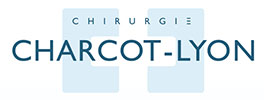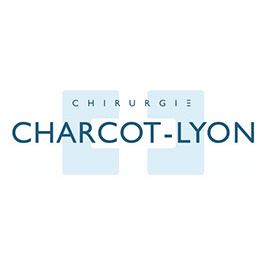What is an anal marisque?
Some growths of flesh can be seen at the level of the anus. These may be related to scarring in relief: this is called marisque. The growths can also be a sign of chronic inflammation or an anal fissure. They may be the expression of a slippage of hemorrhoidal tissue from inside the anus.
The actual marisques are usually non-inflammatory and painless. However, they can be a source of discomfort for good intimate hygiene, be responsible for irritation on exertion or itching. In these situations, it may be appropriate to remove them. The marisques are not polyps, they do not present a risk of cancerous degeneration or complication. For all these reasons, we only treat those that are considered to be really bothersome.
Role of surgery in the treatment of an anal marisque
The surgery of the marisques is based on the ablation of the element in relief. This gesture can be performed under local anesthesia when the skin remains localized and small or under general anesthesia. We often perform an injection of anesthetic product under the area that we want to operate. The wound formed by the removal of the marisque is usually small. However, it can sometimes extend into the anal canal. It is generally superficial and only affects the skin. The anal sphincters are not exposed at the time of surgery. Some operators close the wound with stitches, others leave the wound open.
What is your background in the surgical treatment of an anal marisque?
After having met your surgeon, who confirmed that it was necessary to treat this marisque surgically, you will meet your anesthesiologist who will ensure that anesthesia is possible.
The day before the operation, you must be fasting from midnight. If you take medication on a daily basis, you should discuss this with your surgeon and your anesthesiologist, who may want you to take some of your medication on the morning of the procedure with a background of water. If you take aspirin or medication to thin your blood, tell your surgeon and your anesthesiologist.
The Charcot clinic team (Lyon) welcomes you on admission, the morning of the operation, checks the administrative formalities, ensures that there is no new information and that the instructions given before intervention (shower, fasting, etc.) have been respected.
Then you are taken to the operating room in the operating room, where your surgeon and your anesthesiologist surrounded by their team welcome you and carry out the usual checks (identity, compliance with instructions, etc.).
When you are asleep, your surgeon, assisted by a nurse, will treat your marisques. The duration of the intervention varies from 20 to 45 minutes and depends on the importance and impact of your brand. Local anesthesia (puddendal blocks) is systematically performed in order to limit the pain associated with the procedure.
Once awake, after a few hours in the recovery room, you return to your room. A nurse on the ward makes sure that you are not in too much pain, that you are not nauseous or vomiting, that you gradually come to your senses. A snack is served. Your surgeon comes by at the end of the day to make sure that you are well, to authorize your discharge if necessary and to give you post-operative instructions.
What Complications Can Occur After Anal Mariscus Surgery?
Complications that may occur are rare and are mainly represented by bleeding at the site of the intervention (most often early after the procedure), infection of the wound (often benign and later) or delayed healing. The ablation of a perianal mask does not expose to a risk of incontinence. Post-operative pain that is more intense than expected may require intensified drug treatment. Postoperative hemorrhage is possible, early but also later, between the 5th and 12th day.
It is therefore not recommended to travel too far (travel) during the first two weeks. The formation of a “plug” despite laxatives may require an evacuating enema. Local infection is rare (< 2%), but may require reoperation. Healing delay may occur. Finally, an inflammatory reaction can lead to scarring in slight relief. If in doubt on your part, do not hesitate to ask your surgeon for clarification.
How are the days after anal marisque surgery?
The procedure is performed during outpatient care (the person leaves the unit immediately after the procedure) or during outpatient hospitalization (the person leaves the unit on the day of the procedure after a few hours of hospitalization). Healing is usually obtained within 5 to 15 days after the procedure. Simple local care with water and mild soap is sufficient. It is not necessary to use the services of a nurse. The pain felt after the surgical procedure is usually minimal to moderate.
They are well controlled by simple analgesics such as paracetamol. They are much less important than those reported after surgery for hemorrhoids or a fissure.
What to do in case of problems at home after surgery for anal marisque?
You must absolutely contact your surgeon in case of persistent fever, heavy bleeding, pain that resists the medication prescribed after the operation, persistent nausea, vomiting or difficulty in urinating. If in doubt, do not hesitate to speak up.
When you leave, the documents provided by your surgeon and/or the nurses in the service include the telephone number of the surgery secretariat and the telephone number of the general practitioner on duty (7 days a week, 24 hours a day) practicing at the Charcot clinic. (Lyons). He can, if he deems it necessary, hospitalize you. Do not hesitate to contact us.
Post-operative advice after surgery for anal marisque
Post-operative care is simple (cleaning with soap or antiseptic in the shower or in sitz baths, possible application of cream or ointment, etc.) and most often does not require the intervention of a nurse. These treatments will be detailed to you by your surgeon.
Smoking increases the risk of surgical complications. Quitting smoking 6-8 weeks before the procedure eliminates this additional risk. If you smoke, talk to your doctor, your surgeon and your anesthetist or call the Tobacco-Info-Service line at 39 89 to help you reduce the risks and put the odds in your favor.

